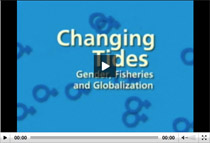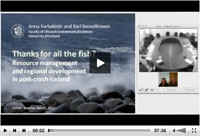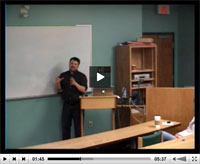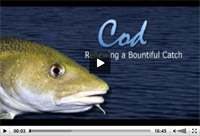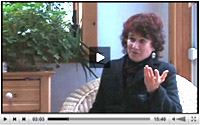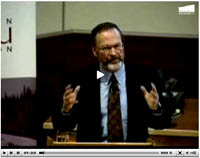
Community - University Research for Recovery Alliance

Videos
Click on the thumbnail to see a video. Adobe Flash required.
The 100 Nautical Mile Seafood Diet
"The 100 Nautical Mile Seafood Diet" is a short video, directed by Anne Troake, that promotes dialogue about ways to build a diet heavily reliant on food from the sea around Newfoundland and Labrador, including both traditional and contemporary uses.

for Life
For thousands of years Atlantic salmon (Kavisilik) and Arctic charr (Ikaluk) have persisted along the Labrador coast. The Labrador Inuit have acquired a wealth of knowledge about natural rhythms associated with the availability of their fishery resources. Today the Aboriginal people of Nunatsiavut believe in keeping healthy the Labrador populations of Atlantic salmon and Arctic charr and in preserving the rich traditions relating to their fisheries. Atlantic salmon and Arctic charr remain at the center of their culture and heritage, helping to define who they are and how they relate to their natural world.
A 30 minute documentary produced by Intervale Associates with the help of Vidcraft Productions for the Torngat Joint Fisheries Board.
Changing Tides: Gender, Fisheries and Globalization
In May 2000, researchers from universities and non-governmental organizations in 18 countries came together with women fishworkers from Atlantic Canada to talk about some of the changes that are happening in fisheries around the world.
They compared experiences, explored the links between local and global change, and talked about how these changes are affecting women and men in fisheries communities.
Thanks for all the fish? Resource management and regional development in post-crash Iceland
Anna Karlsdóttir is Assistant Professor and Program Coordinator in Geography and Tourism Studies, University of Iceland. Karl Benediktsson is Professor of Human Geography.
The fishery resource is once again at the centre of Icelandic politics. The country is searching for a more equitable and sustainable model of resource development to replace the model that culminated in the spectacular bank crash in late 2008.
Fisheries Policy and Management: A Critical History
Dr. Dean Bavington is Canada Research Chair in Environmental History, and Assistant Professor in the Geography and History Departments of Nipissing University. In this presentation, Bavington explores the worship of science and the dismissal of fish harvesters qualitative knowledge, using the Newfoundland cod fishery as an example.
Cod: Renewing a Bountiful Catch
Fish harvesters and scientists describe the abundance of cod stocks in Newfoundland and Labrador waters pre-1990s and what all of us can do to help with recovery of this important species. Intended as a tool to encourage discussion, this 17-minute video by Intervale Associates is suitable for workshops and classroom use.
Fisheries Co-Management
Dr. Evelyn Pinkerton is a maritime anthropologist who has integrated common property theory and cultural/political ecology to consider the role communities play in the management of adjacent renewable natural resources. She has played a key role in developing the theory and practice of powersharing and stewardship through co-management agreements.
In this video, Pinkerton discusses co-management as it is practiced in the fishery.
Reflections on Fisheries Research
Dr. Bonnie McCay is Board of Governors Distinguished Service Professor at Rutgers University, where she chairs the Department of Human Ecology. She is an ecological and cultural anthropologist specializing in the study of coastal and maritime socio-ecological systems, bringing together social and biological sciences to focus on issues in marine and ocean management.
In this video, Bonnie McCay reflects on decades of experience doing research on Fogo Island fisheries. The original presentation was made on October 26, 2009 at Memorial University of Newfoundland.
Are Humans Unsustainable by Nature?
Dr. William Rees is a 2007 Trudeau Fellow at University of British Columbia's School of Community and Regional Planning. He founded the School's Environment and Resource Planning concentration. His research focuses on policy implications of environmental trends, and on the preconditions for sustainable development.
In this Trudeau Lecture, Dr. Rees asks the question: "Are Humans Unsustainable by Nature?" The original presentation was made on January 28, 2009, at Memorial University of Newfoundland.
 |
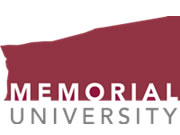
|
 Marine Station
Marine Station
